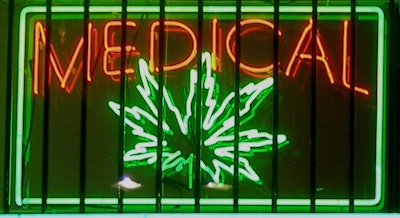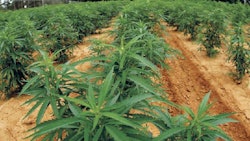
by Noelle Skodzinski
Medical marijuana advocates have been pushing for a rescheduling of the drug by the U.S. Drug Enforcement Agency (DEA) for years. Support for the drug's rescheduling has grown in recent years, as more than 20 states have legalized it for medical uses, and the list of diseases and ailments for which the drug has perceived treatment benefits has expanded. One of the most compelling uses of the drug has been to treat children with severe epilepsy, and even some conservative states have approved the use of cannabidiol (CBD) oil (a non-high-producing compound found in cannabis) for such use. Now, in an extremely significant policy statement update, the American Academy of Pediatrics (AAP) has recommended that the DEA reschedule marijuana from a Schedule 1 drug–which, according to the DEA's classification, means that it has no medicinal use and a high potential for abuse–to a Schedule II drug. (Heroin also is classified as a Schedule 1 drug.)
Reclassifying marijuana as a Schedule II drug would make it federally legal for registered medical practitioners to prescribe marijuana. Examples of other Schedule II drugs, according to the DEA drug schedule, are: methamphetamine, hydromorphone (Dilaudid), meperidine (Demerol), oxycodone (OxyContin), Adderall and Ritalin.
In its policy statement, the AAP cites a lack of published studies regarding the benefits of medical marijuana or pharmaceutical cannabinoids to children. It stated that it "recognizes that marijuana may currently be an option for cannabinoid administration for children with life-limiting or severely debilitating conditions and for whom current therapies are inadequate," and recommends the DEA reschedule marijuana so that the drug can be researched under regulations set by the Food and Drug Administration.
The AAP's policy statement includes mention of the association's opposition to marijuana use by those under age 21, and its opposition to "'medical marijuana' outside the regulatory process of the US Food and Drug Administration."
It also states that it opposes legalization due to the "potential harms to children and adolescents," and it encourages examination of states that have legalized recreational marijuana to determine the impact on adolescent use. It recommends strict regulations around marketing and advertising to the adolescent market.
The pediatric association also supports decriminalization of marijuana among adolescents and young adults, and "encourages pediatricians to advocate for laws that prevent harsh criminal penalties for possession or use of marijuana." It recommends a focus on treatment for those with use problems instead.
Among the AAP's other recommendations are:
- Â in states that have legalized marijuana, the sale of the drug should be regulated the same way alcohol and tobacco are regulated, and a minimum age requirement of 21 should be established to be able to purchase marijuana;
-  also in states with legalization, the revenue from the sale of the drug should be used to "support research on the health risks and benefits of marijuana";
-  strict penalties should be established for those who sell marijuana to people under age 21; and
-  all marijuana products should be distributed in childproof packaging to prevent accidental consumption by children.
The AAP discourages the smoking of marijuana, because, it states, "smoking is known to cause lung damage," citing the article "Adverse Health Affects of Marijuana Use" from The New England Journal of Medicine, 2014. It also recommends against adults consuming marijuana in the presence of minors.
Read the full policy statement update here.
(Feature image by Laurie Avocado.)Â Â



























